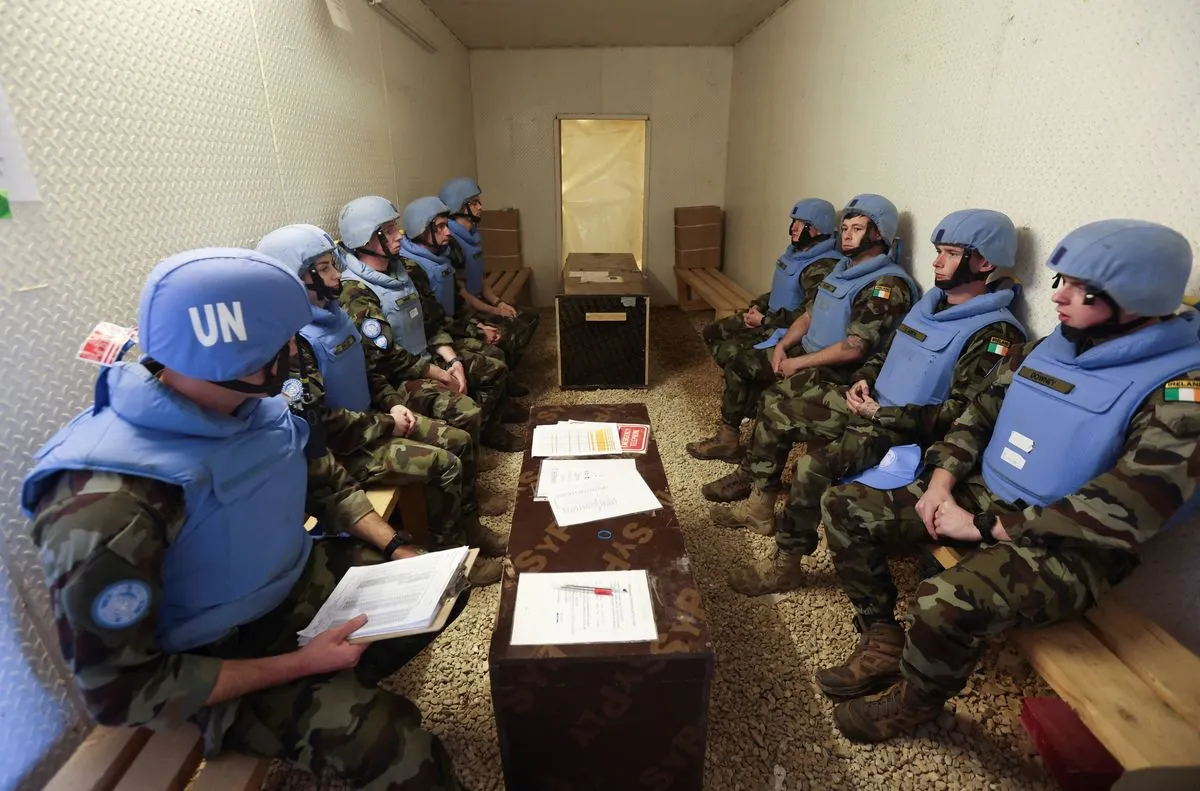The United Nations Interim Force in Lebanon (UNIFIL), established in 1978, continues to face significant challenges in its mission to maintain peace along the Lebanon-Israel border. UNIFIL was initially deployed to patrol southern Lebanon following an Israeli invasion, with its mandate renewed annually by the UN Security Council.
The peacekeeping force operates in an area defined by the Litani River to the north and the Blue Line to the south. The Blue Line, a UN-mapped demarcation, separates Lebanon from Israel and the Israeli-occupied Golan Heights. It's important to note that the Blue Line is not an international border but serves to confirm the withdrawal of Israeli forces, which occurred in 2000.
UNIFIL's mandate was expanded in 2006 following a month-long conflict between Israel and Hezbollah. UN Security Council Resolution 1701 broadened the mission's responsibilities, increasing its troop strength from about 2,000 to a maximum of 15,000. Currently, UNIFIL comprises over 10,000 troops from 50 countries and approximately 800 civilian staff.
Resolution 1701 tasks UNIFIL with assisting the Lebanese army in keeping the area free of unauthorized weapons or armed personnel. This has led to tensions with Hezbollah, an Iran-backed group that effectively controls southern Lebanon despite the Lebanese army's presence. Hezbollah, founded in 1985 in response to Israeli occupation, has become Lebanon's most powerful political force while maintaining a significant armed presence.
UNIFIL is required to report all violations of Resolution 1701 to the UN Security Council. The UN Secretary-General provides updates every four months on the implementation of the resolution. Recent reports have highlighted persistent violations by both sides:
- Hezbollah's maintenance of unauthorized weapons outside state control
- Israeli aircraft and drones violating Lebanese airspace
- Impediments to UNIFIL's freedom of movement
These ongoing issues underscore the complex challenges facing UNIFIL in fulfilling its mandate. The mission conducts approximately 14,000 operational activities monthly, including 450 air patrols, to monitor the situation and prevent escalations.
"The continued self-acknowledged maintenance of unauthorized weapons outside state control by Hezbollah and other armed groups remains a persistent, grave violation. Concurrently, the ongoing violations of Lebanese airspace by Israeli aircraft and uncrewed aerial vehicles continue to be of deep concern."
The situation in Lebanon is further complicated by internal political instability. Since August 2020, Lebanon has lacked a fully functioning government, and the country has been without a president since October 2022 due to political deadlock. This instability, rooted in Lebanon's confessional political system, which divides power among religious communities, adds another layer of complexity to UNIFIL's operations.
Despite these challenges, UNIFIL remains committed to its mission. With a budget of approximately $474 million for 2023-2024, the force continues its efforts to maintain peace and stability in the region. However, the persistent violations by both Israel and Hezbollah, coupled with Lebanon's internal political challenges, highlight the ongoing difficulties in achieving a lasting resolution to the conflict.
As UNIFIL approaches its 46th year of operation, the mission's importance in preventing major hostilities cannot be understated. However, the continued violations of Resolution 1701 and the complex regional dynamics underscore the need for renewed international efforts to address the root causes of the conflict and support Lebanon's stability.
